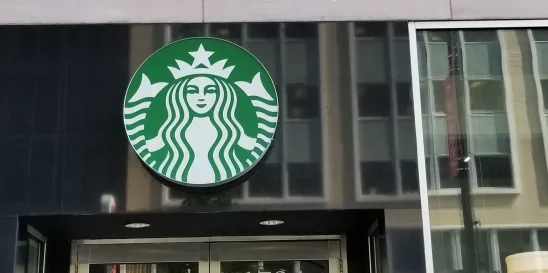Can you prevent your employees from handing out pro-union paraphernalia if they’re on a paid break? After brewing on the issue, the D.C. Circuit says no, backing baristas in the first of five National Labor Relations Board (NLRB) rulings involving Starbucks currently pending before the circuit courts of appeal.
As we’ve noted before, unions and pro-union paraphernalia have been the order of the day as NLRB decisions involving employees’ organizing rights have recently come up on appeal. While some decisions may have left the Board with a bitter taste, the D.C. Circuit recently upheld the Board’s decision supporting Starbucks employees’ right to distribute pro-union pins under certain conditions.
The Initial Grind
In 2022, as Starbucks stores around the country began to unionize, the pro-union movement made its way back to Seattle. At one of Starbucks’ original stores, a customer that personally knew an employee, Rachel Ybarra (who uses the pronoun they), asked if they had paraphernalia supporting the Starbucks employees’ union drive. Ybarra responded that they had some pro-union buttons, and the customer asked for some. Ybarra then left the coffee counter, went back to a back room, and returned with a handful of union buttons. A few days later, a Starbucks employee from a different store visited Ybarra’s store. Ybarra, apparently aware that the employee from the other store was organizing a union drive, took a 10-minute shift break and returned with a bag of union buttons for the other employee.
Ybarra’s manager, Pam Mariscal, witnessed these two interactions. Some time later, Mariscal called Ybarra back to the store and instructed them to refrain from distributing buttons during work time on Starbucks property. Ybarra responded that they were on a 10-minute break during one of the incidents, but Mariscal maintained that a break “is still considered a company paid-time, so it is not something you should be doing while on the clock.”
Starbucks in Hot Water
Along with other complaints from the union of unfair labor practices , the Board’s general counsel issued a complaint alleging that Starbucks violated the National Labor Relations Act, specifically Section 8(a)(1), which prevents an employer from interfering with, restraining, or coercing employees in the exercise of their right to self-organize, form, or assist in labor organizations.
The Board found that Starbucks had violated Section 8(a)(1) of the Act by instructing Ybarra not to hand out buttons or pins while at work, and ordered that Starbucks refrain from interfering with employees’ organization rights and post a remedial notice. Starbucks appealed the Board’s decision, and the Board cross-applied for enforcement.
A divided D.C. Circuit affirmed the Board’s decision and held that there was substantial evidence supporting the conclusion that Starbucks interfered with the rights of Ybarra and other employees. In particular, the court noted that Mariscal told Ybarra that they could not hand out things to customers that were not their food and beverage orders, and prevented Ybarra from handing out union paraphernalia even when they were on a break.
Additionally, the court rejected arguments that Mariscal’s statements were limited to Ybarra’s interactions with Starbucks customers, which are inherently always on the “selling floor.” Instead, the court held that Mariscal’s statements were broad enough to cover all of Starbucks’ property, including non-public areas during the employee’s paid break time.
Not Everyone’s Cup of Tea
Judge Gregory Katsas dissented, noting that Mariscal’s admonitions arose after Ybarra appeared to hand pro-union buttons to customers on multiple occasions. Judge Katsas noted that it is not an unfair labor practice for employers to prohibit employees from distributing union or other material in public areas of a retail establishment regardless of whether the employees are actively working or on paid breaks. Judge Katsas also noted that, even when Ybarra handed pro-union paraphernalia to the other Starbucks employee, that interaction happened in the public area of the store, and the other employee was in plain clothes, appeared to be a customer, and was a stranger to Ybarra at the time. Thus, when Mariscal confronted Ybarra, she only reprimanded Ybarra for distributing buttons and pins to customers, an activity that Starbucks was free to restrict even if Ybarra was on a break at the time.
Creating Your Perfect Blend
While the decision against Starbucks may seem niche, it also shows how granular the NLRB (and perhaps the courts) will be when examining a manager’s interactions with employees as it relates to union activity.
To make sure your business does not run the risk of a tense coffee date with the Board, remember these few tips:
- Blanket bans on soliciting or distributing union material during all work time, even on paid break time, are presumptively invalid.
- While you can prevent employees from soliciting and distributing union materials to customers, you and your managers should be specific when addressing where and when employees can distribute those materials.
- Don’t be too quick to judge a customer by his or her looks, especially if your business has multiple locations; if Mariscal had asked questions to clarify Ybarra’s second encounter before she reacted, she may have been able to clarify her remarks to avoid the Board’s actions.
- If employees are on a break, and in an area where customers are not present, there are very few limitations, if any, you can impose on their union activities.





 />i
/>i
